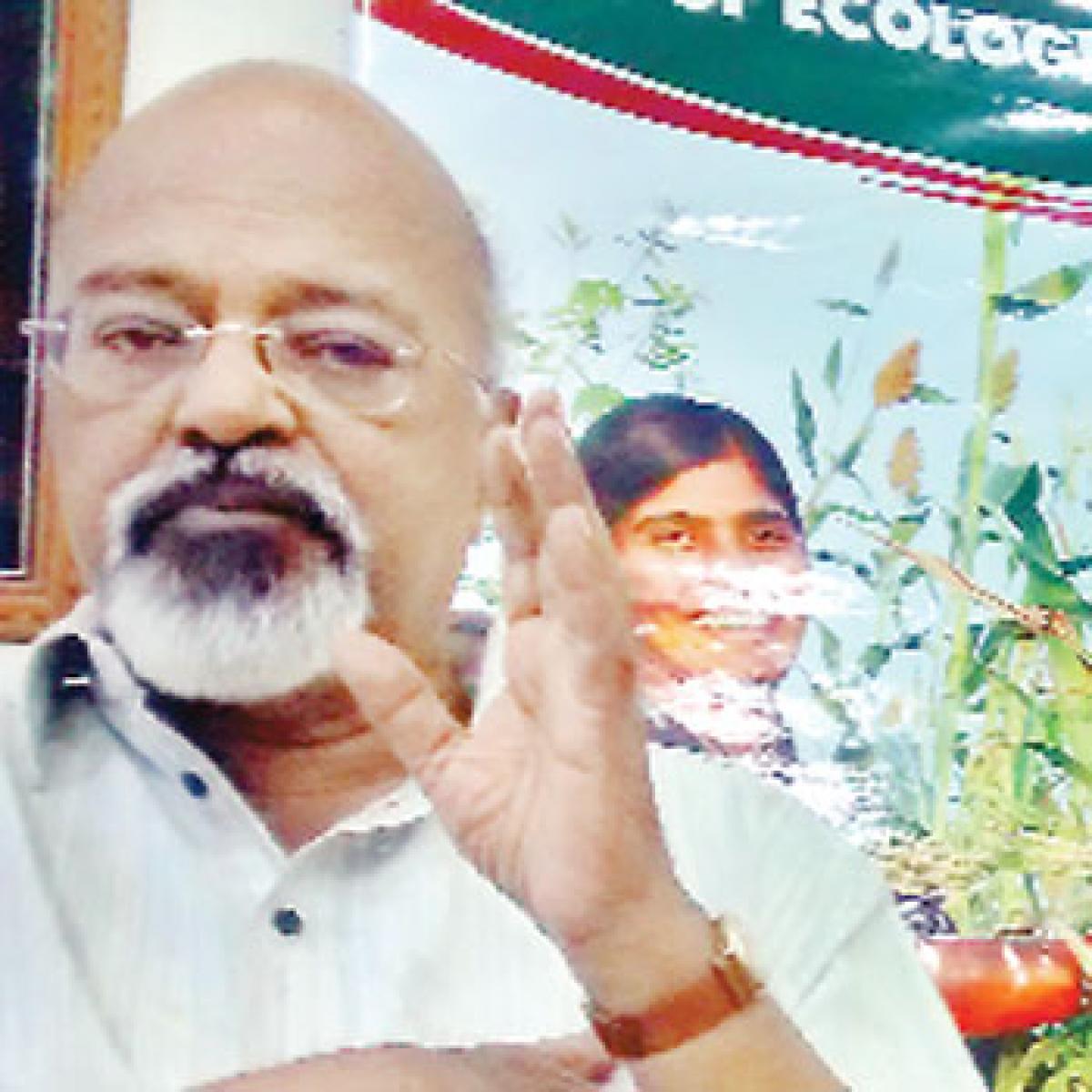Live
- 555th Prakash Purab celebrated with gaiety
- Good news for Atmakur farmers
- High-risk aortic valve replacement surgery performed successfully
- HMWSSB MD holds review meeting on OTS-2024 scheme
- Dhobi Ghat assessed for potential to host sports complex
- SCR bets on LHB train coaches for safety
- SVU felicitates best teachers
- Tata Group to market Araku coffee
- Union Min assures development of infra in tribal mandals
- KTR, Harish will turn political rivals soon: TPCC Chief
Just In

Telangana is the largest millet growing State in India. Gujarat and Rajasthan are identified with Bajra, Central Indian states with Kodo and Katki and the Himalayan states with Ragi, but Telangana has a wide variety of millets and we have been trying to convince the government to declare Telangana as a millet state,” said P V Satheesh, National Convenor, Millet Network of India and director, Deccan Development Society.
 Telangana is the largest millet growing State in India. Gujarat and Rajasthan are identified with Bajra, Central Indian states with Kodo and Katki and the Himalayan states with Ragi, but Telangana has a wide variety of millets and we have been trying to convince the government to declare Telangana as a millet state,” said P V Satheesh, National Convenor, Millet Network of India and director, Deccan Development Society.
Telangana is the largest millet growing State in India. Gujarat and Rajasthan are identified with Bajra, Central Indian states with Kodo and Katki and the Himalayan states with Ragi, but Telangana has a wide variety of millets and we have been trying to convince the government to declare Telangana as a millet state,” said P V Satheesh, National Convenor, Millet Network of India and director, Deccan Development Society.
He said that Telangana is a water starved state and growing millets can answer many questions. There is a need to find an alternative for problems created due to climate change and millet crops are the alternative. Millets are suitable for dry land and can address the issue of malnutrition.
Addressing the delegates on the opening day of the two-day IV National Convention on Millets, Satheesh said that major parts of Telangana do not have millets, for instance; there is not a single canal in Medak District. “Irrigating one crore acres of land as claimed by the government is bravado,” he said.
The two-day National Convention of millets is organised by Millet Network of India (MINI) in collaboration with Centre for Economic and Social Studies.
Earlier, C Parthasarathi, prinicipal secretary agriculture, Government of Telangana said that there was a need for innovation and research to produce high yielding varieties to increase millet productivity. He also said that millets should be introduced in the modern markets like malls to attract the younger generation.
Emphasising the need to change the approach to development, Professor S Galab, director, Centre for Economic and Social Studies (CESS) said that there was a need to work with multiple stake-holders. CESS, Millet Network of India (MINI) and Deccan Development Society can work on a research project that is not just based on pure economics but on development economics.

© 2024 Hyderabad Media House Limited/The Hans India. All rights reserved. Powered by hocalwire.com







